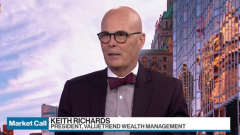Oct 27, 2023
US Near-Term Inflation Views Jump to 4.2%, Highest Since May
, Bloomberg News

(Bloomberg) -- US near-term inflation expectations rose in October to a five-month high as they feared higher prices at the gas pump, reinforcing downbeat views on the economy.
Consumers expect prices will climb at an annual rate of 4.2% over the next year, up from the 3.2% expected last month, according to the final October reading from the University of Michigan. They see costs rising 3% over the next five to 10 years, data Friday showed.
Respondents see gas prices in the year ahead rising by the most since June 2022, when inflation reached a 40-year high. A report earlier Friday showed the Federal Reserve’s preferred inflation measure rose at a firm pace for a second month in September, bolstered by high energy prices.
Even so, consumer spending accelerated, rounding out a quarter that was the strongest in nearly two years. However, economists doubt that momentum can be sustained as wages start to trail inflation, savings wane and student-loan payments resume.
“While consumers recognize that inflation has slowed down from its peak last summer, they cannot ignore that their budgets remain stretched and their purchasing power reduced,” Joanne Hsu, director of the survey, said in a statement. “Even so, strength in incomes continues to support aggregate spending.”
Over 80% of consumers said inflation would cause greater hardship than unemployment in the year ahead, the highest share in almost a year, according to the survey. Nearly half blamed high prices for eroding their living standards, the most in 15 months.
What Bloomberg Economics Says...
“Inflation concerns were more prevalent in the final reading of the University of Michigan’s October consumer sentiment survey... Along with a fourth straight decline in real disposable personal income, that will increasingly weigh on consumer demand.”
— Eliza Winger. To read the full note, click here
Along with inflation, negative headlines related to the war in the Middle East as well as the House speaker debacle and former President Donald Trump’s legal troubles also weighed on consumers views. The sentiment index dropped more than four points to 63.8 in October as gauges of both current conditions and future expectations worsened.
Sentiment particularly declined among higher-income consumers as the value of their stock holdings dropped. If sustained, that “could pose downside risks for spending in the months ahead,” Hsu said.
--With assistance from Kristy Scheuble.
(Adds graphic, Bloomberg Economics comment)
©2023 Bloomberg L.P.






